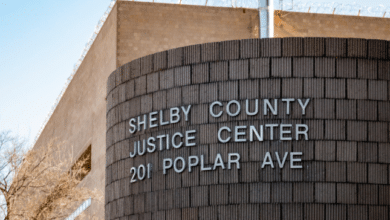Ex-Honduran President Hernandez arrested, set to be extradited to US

Tegucigalpa, Feb 15 (EFE).- The capture on Tuesday of former Honduran President Juan Orlando Hernandez in Tegucigalpa at the request of the United States, which accuses him of three crimes linked to drug trafficking, marks the beginning of the process to extradite him to the US, where his brother Juan Antonio “Tony” Hernandez is serving life behind bars.
In an operation directed by Security Minister Ramon Sabillon amid rigorous security precautions, Hernandez was captured at the front door of his home and immediately was outfitted with a bulletproof vest, had his wrists and ankles handcuffed and was taken to a special National Police facility.
The capture came shortly after Judge Edwin Ortez, designated earlier on Tuesday by the Honduran Supreme Court, issued the arrest order amid much speculation in Honduras and jubilation among the public, who had awaited this moment for a number of years.
The former president emerged from the front door of his home in the exclusive San Ignacio neighborhood in eastern Tegucigalpa dressed in blue jeans, a jacket, white shirt and a facemask.
The request for his arrest with an eye toward his extradition was made on Monday by the US Embassy in the Honduran capital 20 days after Hernandez ended his second consecutive term in office on Jan. 27, whereupon he was succeeded by President-elect Xiomara Castro.
Hernandez has served as president for eight years, despite the fact that the Honduran Constitution expressly bars a president from serving consecutive four-year terms.
After the US request on Monday, hundreds of police and soldiers mounted a security operation to prevent the ex-president’s flight, although early Tuesday morning he had announced that he was “ready to cooperate” by turning himself in to authorities.
“It’s not an easy moment. I don’t wish it on anyone, but the purpose of this message … (is to say) that the National Police has received the message that I’m ready to cooperate and come voluntarily … when the judge … decides, to be able to face this situation and defend myself,” Hernandez said in an audio message posted on Twitter.
A few hours later the high court appointed Ortez to deal with the US request made through its Embassy in the capital.
From his home, Hernandez was taken in a vehicle to a special National Police station, where he will remain in custody while his case moves forward.
Hernandez will make his first appearance before Ortez on Wednesday at 10:30 am, a court source announced.
The US accuses Hernandez of three counts, the first for conspiring to import a controlled substance into the US as well as manufacturing, distributing and possessing that substance with the intention of shipping it aboard a US-registered aircraft.
The second charge is for using or bearing firearms or helping and instigating the use and possession of machineguns and destructive devices, adding that the weapons were to be used to support the conspiracy to import narcotics into the US.
The third charge concerns engaging in a conspiracy to use or carry firearms, as outlined in the second charge.
In other matters, the US Embassy said that, in all, since about 2004, the conspiracy transported more than some 500,000 kilograms of cocaine via Honduras to the US.
The security minister said after Hernandez’s capture that “he cooperated in a satisfactory manner” at the time of his arrest and that Ortez had exchanged a few words with him to explain to him the procedure to be followed after his arrest.
So far, it is not known when Hernandez will be extradited to the US, although that process could take about three months, according to the former president’s defenders.
Hernandez is the second Honduran ex-president to face justice in the US, the first being Rafael Callejas, who governed from 1990-1994 and, after turning himself in in 2015, in March 2016 pleaded guilty in a US court to accepting $500,000 in bribes during his tenure as head of the Honduran Soccer Federation as part of the huge scandal that erupted within FIFA, international soccer’s governing body.
Callejas died of a heart attack on April 4, 2020, in the US, where he was on probation.
Hernandez’s brother Tony was sentenced in March 2021 in the US to life in prison after being found guilty of smuggling some 204 tons of cocaine into the country over 15 years, and during his trial testimony was provided that he had funneled millions of dollars in bribes to his brother, who was president at the time.





